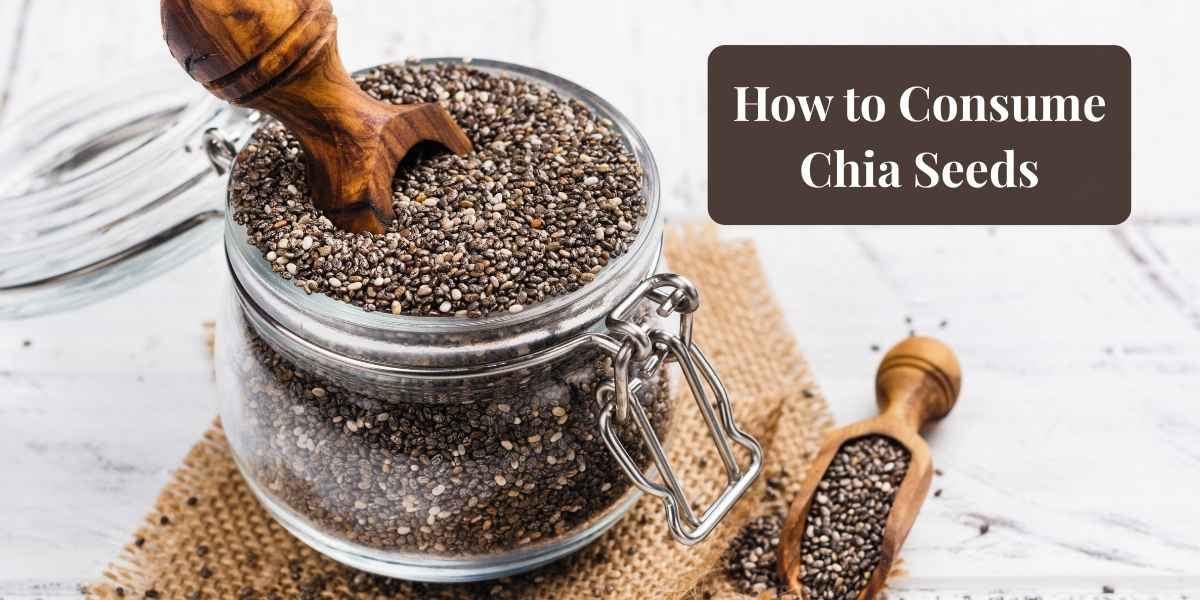Chia seeds have recently emerged as one of the most celebrated superfoods, admired worldwide for their exceptional nutritional profile and ease of use. These tiny black or white seeds are harvested from the Salvia hispanica plant, which has its roots in the ancient food traditions of Central and Southern Mexico. Known for being rich in fiber, plant-based protein, omega-3 fatty acids, antioxidants, vitamins, and essential minerals, chia seeds can play a significant role in boosting immunity, supporting heart health, stabilizing energy levels, and improving digestive function. In this article, we will guide you through practical ways on how to consume use chia seeds, highlighting their unique benefits for men and women, tips for consuming them with water, recommended daily dosage, and their effectiveness as a natural remedy for constipation relief.
What makes them even more appealing is their neutral taste, long shelf life, and ability to complement a wide range of recipes without altering flavor or texture. From smoothies and salads to puddings and baked goods, they can be enjoyed in countless ways, suiting the busy lifestyle of working professionals as well as individuals mindful of their health and fitness routines. Whether you want to enhance hydration, support weight management, regulate digestion, or meet specific nutritional goals, chia seeds offer a flexible and effective solution that easily fits into your daily diet.
Step-by-Step Guide on How to Consume Chia Seeds
Incorporating chia seeds into your routine is simple, but following the right method maximises their health benefits. These seeds absorb liquid and expand, forming a gel-like texture that makes them easier to digest and more effective for nutrition absorption. By preparing them correctly, you can enjoy their full potential without discomfort. Whether you’re new to chia or already experimenting with recipes, these step-by-step methods will help you add them smoothly into your daily meals.
1. Start with Quality Chia Seeds
Always begin by choosing high-quality, organic chia seeds that come in a properly sealed package. Organic options ensure that the seeds are free from pesticides and harmful chemicals, making them safer for daily consumption. Check the packaging for the harvest or expiry date, and always give them a quick smell before use—fresh chia seeds should be neutral, without any sour or rancid odor. Investing in good quality seeds makes a noticeable difference in taste and nutrition.
2. Begin with Small Quantities
If you’ve never consumed chia seeds before, it’s wise to start slow. Begin with just 1 teaspoon per day so your digestive system gets used to the extra fiber. Gradually increasing your intake over a week or two helps prevent bloating and discomfort, especially for those who aren’t used to high-fiber foods. Once your body adjusts, you can comfortably increase to 1–2 tablespoons daily.
3. Dry Use in Smoothies or Oats
A convenient way to enjoy chia seeds is by adding them directly into smoothies, yogurt bowls, or oatmeal. Start with 1 teaspoon to 1 tablespoon, depending on your preference. Since chia seeds naturally absorb a lot of liquid, always add a little extra water, milk, or juice to maintain the right consistency in your dish. This method is quick, fuss-free, and perfect for busy mornings when you need a nutrient boost on the go.
4. Create Chia Pudding
Making chia pudding is simple and delicious. Take 3 tablespoons of chia seeds and mix them with about a cup (250 ml) of milk or any plant milk you like. Stir well so the seeds don’t stick together, then leave it for 15 to 30 minutes, or better yet, pop it in the fridge overnight for a thicker texture. Before eating, add your favorite toppings like fresh fruit, nuts, or a little honey—it makes a great breakfast or dessert.
5. Stir Into Water or Beverages
Another simple method is to add chia seeds to plain water, juices, or even herbal teas. Mix 1–2 teaspoons of seeds into your drink and stir steadily until they begin to absorb the liquid. After a few minutes, the seeds will develop a gel coating, making the drink more filling and hydrating. This is especially refreshing during hot weather or after workouts when you need extra energy and hydration.
6. Use as an Egg Substitute (Vegans)
If you follow a vegan diet or simply want to cut down on eggs, chia seeds are an excellent swap in baking. To replace one egg, mix 1 tablespoon of chia seeds with about 2.5 tablespoons of water and let it rest for 5–10 minutes. Once the mixture thickens into a gel, you can add it to recipes like cakes, muffins, or pancakes. It binds ingredients well and also adds a nutritional boost without altering the taste much.
7. Bake with Chia Seeds
Chia seeds don’t just work as an egg substitute—they can also be added directly to baking mixes. Stir in 1–2 tablespoons into your muffin, bread, granola bar, or pancake batter. The seeds give a subtle crunch, help improve the texture, and increase the fiber content of your baked treats. This is an effortless way to enrich recipes you already enjoy without making drastic changes.
8. Balance Quantity and Hydration
Because chia seeds soak up several times their weight in liquid, it’s essential to pair them with enough fluids. Eating them dry in large amounts may lead to bloating or digestive unease. A good rule is: if you’re sprinkling them dry into meals, follow up with extra water; and if you’re soaking them, make sure you let them swell properly before eating. This small step makes them easier on your stomach while ensuring maximum benefits.
9. Store Properly
Like most seeds, chia should be stored with care to maintain freshness. Keep them in an airtight container and place it in a cool, dark cabinet, away from sunlight or heat. If your environment is humid, storing them in the refrigerator is even better. Fresh, properly stored chia seeds can last up to two years. Always check the pack date or expiry information so you know you’re consuming them at their best.
10. Adjust Based on Needs and Tolerance
While chia seeds are very healthy, everyone’s body reacts differently. Start with a small quantity and only build up as your digestion allows. If you experience bloating or gas, cut back slightly and focus on increasing hydration. Over time, your body will adapt, making it easy to include chia seeds in your meals regularly. The key is finding the serving size that works well for you.
Benefits of Chia Seeds
Chia seeds provide a wide range of health benefits that contribute significantly to overall body function, enhance energy levels, and promote long-term wellness. These tiny seeds pack a powerful nutritional punch, supporting everything from heart health to digestion and brain function. Their nutrient density makes them an excellent addition to daily diets for those looking to boost vitality and prevent chronic illnesses. Below, we highlight the main advantages of chia seeds along with some special considerations tailored for women’s health.
Rich in Dietary Fiber
Chia seeds are full of fiber which helps your digestion work smoothly and keeps things moving to avoid discomfort like constipation. Plus, the fiber helps you stay fuller for longer, so you’re less likely to snack when you don’t need to.
High in Plant-Based Protein
These tiny seeds pack a good amount of protein, which is especially helpful if you don’t eat meat. They have all the key amino acids your body needs for muscle repair and keeping your energy steady throughout the day.
Packed with Omega-3 Fatty Acids
Chia seeds are an easy way to add omega-3 fats, especially ALA, into your diet. These fats are great for your heart and brain, helping with things like focusing and memory.
Full of Antioxidants
They’ve got plenty of antioxidants that help protect your body’s cells from everyday damage and stress. This can slow the signs of aging and keep you feeling good longer.
Bone-Healthy Minerals
Loaded with minerals like calcium, magnesium, and phosphorus, chia seeds help keep your bones strong and support your muscles so you can stay active and pain-free.
Helps Control Blood Sugar
Thanks to their fiber and ability to soak up liquid, chia seeds slow down how fast sugar enters your bloodstream. This helps avoid sudden energy drops and keeps your blood sugar levels steady after eating.
Supports Hydration
Because chia seeds hold onto water, they act like little natural water reservoirs. They’re especially helpful during workouts or hot days when staying hydrated is essential to feeling your best.
Good for Your Heart
Regularly eating chia seeds can help improve your cholesterol levels and support your heart’s health, thanks to their fiber and omega-3 content.
Chia Seeds Benefits for Females
Chia seeds offer several benefits specifically for women. They help ease menstrual discomfort by stabilizing blood sugar, support bone health especially during pregnancy and menopause, and aid in weight management by keeping you full longer. Additionally, their rich nutrients promote healthy skin and hair, while the essential fats help balance hormones, making chia seeds a simple yet powerful addition to any woman’s diet.
Easing Period Discomfort
Chia seeds have fiber that helps keep blood sugar steady, which in turn can calm down those annoying mood swings and cramps during your period. It’s a simple way your diet can lend a hand during that time of the month.
Supporting Stronger Bones
They’re a good source of calcium, something especially important for women during pregnancy and menopause when your bones need extra care. Adding chia seeds can be a tasty way to help keep your bones sturdy.
Helping with Weight Control
Because chia forms a gel when mixed with water, it helps you stay full longer. This can make a big difference if you’re trying to manage your weight without feeling hungry all the time.
Nourishing Skin and Hair
The nutrients in chia seeds do more than just feed your body—they also help keep your skin soft and elastic while making your hair stronger and less likely to break. It’s like a little beauty boost from within.
Balancing Hormones Naturally
Chia seeds contain good fats that play a role in keeping your hormones, like estrogen and progesterone, more balanced. This can help smooth out some of the ups and downs many women experience.
How to Consume Chia Seeds with Water
Drinking chia seeds soaked in water is an easy way to include them in your daily routine. When mixed with water, the seeds swell up and turn into a smooth gel, making them gentle on your stomach and helping your body absorb the nutrients better. It’s a refreshing drink that’s both hydrating and good for digestion. Here’s a simple step-by-step to make chia water the right way.
Measure the Seeds and Water
Start by measuring 1 to 2 teaspoons of chia seeds for every cup (240 ml) of water. This ratio helps ensure you get the right balance for the seeds to absorb liquid properly without becoming too thick or watery.
Mix Thoroughly
Pour the seeds into the water and stir them well. Vigorously mixing helps prevent the seeds from clumping together and encourages even absorption as they begin to soak.
Let Gel Form
Give the mixture about 5 to 10 minutes to sit so the chia seeds can soak up the water and develop their signature gel-like texture. This gel helps improve digestion and makes the seeds easier to swallow and absorb.
Stir Again
Before drinking, give the mixture another good stir to break up any clumps and ensure an even, smooth consistency.
Flavor as Desired
If plain water feels too bland, add a squeeze of lemon, a touch of honey, or a splash of fruit juice. You can enjoy this drink chilled or warm, whichever feels most refreshing or soothing to you.
Sip Slowly
Drink your chia water slowly over a period of time. This helps your body absorb the fluids better and maximizes the hydration benefits.
Consume on an Empty Stomach
For best results, have your chia water first thing in the morning or on an empty stomach. This improves nutrient absorption and can help ease common digestive problems like constipation.
Adjust Over Time
Everyone’s body responds differently, so listen to your tolerance. If you feel too full or uncomfortable, try reducing the amount of chia seeds or adding more water. Finding the right balance can take a little trial and error.
How Much Chia Seeds to Consume Daily
Daily intake should be balanced, mindful of fiber content and hydration needs to ensure comfort and effectiveness.
- For beginners: It’s best to start with 1 teaspoon (approx. 5 grams) per day, allowing your digestive system time to adjust to the increased fiber.
- Maintenance: Once accustomed, you can increase to 1–2 tablespoons (10–20 grams) daily as a typical serving to enjoy the full benefits.
- Upper Limit: Generally, avoid consuming more than 3 tablespoons unless recommended by a healthcare professional, as excessive fiber intake might lead to bloating, gas, or other digestive discomfort. Staying well hydrated alongside chia consumption also helps prevent these issues.
Guidelines by Age Group
- Infants (6–12 months): ½ to 1 teaspoon mixed into foods is sufficient to provide gentle nutrition without overwhelming their delicate digestive systems.
- Toddlers (1–3 years): ½ to 1 tablespoon split across meals works well to introduce chia seeds gradually as part of a balanced diet.
- Adults: 1 to 2 tablespoons daily is typical and helps meet nutritional needs while supporting digestion and energy levels.
- Elderly or Those with Digestive Issues: It’s best to start with a low amount and increase gradually, allowing time for fiber adaptation to avoid discomfort.
- Always drink extra water—at least an additional 500 ml per day—to help chia’s fiber move smoothly through your digestive system and keep you well hydrated.
How to Consume Chia Seeds for Constipation
Chia seeds are particularly beneficial when it comes to relieving constipation thanks to their remarkable ability to absorb water and their high fiber content. When soaked, they form a gel that softens stools and encourages smoother bowel movements. Incorporating chia seeds into your diet correctly can provide gentle, natural relief without harsh effects. Here’s a simple guide on how to use them effectively for better digestive health.
Start Low
Begin with just ½ teaspoon mixed into water or food to see how your body reacts before increasing the amount.
Hydrate Adequately
It’s crucial to consume plenty of fluids with chia seeds; without enough water, they might actually make constipation worse rather than better.
Best Way—Chia Water
The most effective method is to mix 1 tablespoon of chia seeds with 1 cup of water, allowing it to gel before drinking it on an empty stomach in the morning.
Combine with Soft Foods
You can also stir soaked chia into soft foods like yogurt, applesauce, or oatmeal, which can make digestion even easier and gentler.
Adapt to Your Diet
Pair your chia intake with other fiber-rich fruits such as prunes or pears to enhance the natural digestive benefits.
Gradually Increase Portion
If you experience no discomfort with the initial amount, slowly increase your intake to 1–2 tablespoons per day.
Monitor Response Time
Typically, the positive effects show up within 12 to 24 hours, especially with good hydration. Remember to expect gradual improvements rather than sudden changes.
Skip When Hydration Is Low
Avoid consuming chia seeds when you’re dehydrated, such as during illness or extreme heat. Wait until you’ve replenished your fluids first for safety.
Conclusion for How to Consume Chia Seeds
Chia seeds may be tiny, but they pack a powerful nutritional punch with incredible versatility. Whether you add them to smoothies, soak them in water, blend them into puddings, or use them in baked goods, chia seeds can easily boost the nutritional value and convenience of your meals.
They offer a wide range of benefits—from supporting digestion and hydration to enhancing bone health and aiding weight management—making them valuable for both women and men. By introducing chia seeds gradually, drinking plenty of fluids, and incorporating them into foods you enjoy, you can make these seeds a reliable part of your daily health routine. Thoughtful use of chia seeds can help support your energy, digestive comfort, and overall wellness for the long term.
FAQs for How to Consume Chia Seeds
Q1. Can I eat chia seeds every day?
Ans:- Definitely! Most people find that 1 to 2 tablespoons a day works well for them.
Q2. Do chia seeds need soaking before use?
Ans:- If you’re mixing them with water or milk, soaking helps a lot. If you’re adding them straight to smoothies or baking, you’re good—just drink enough water.
Q3. Can chia seeds cause bloating?
Ans:- Sometimes, if you don’t drink enough fluids with them. So, keep your water intake up when eating chia.
Q4. Are chia seeds gluten-free?
Ans:- Yes, naturally gluten-free and safe if you can’t have gluten.
Q5. Can toddlers have chia seeds?
Ans:- They can, but start small—about half a teaspoon mixed into soft food—and see how they handle it.
Q6. Should pregnant women eat chia seeds?
Ans:- Chia has some great nutrients for pregnancy, but it’s best to check with your doctor before adding new foods.
Q7. Can chia seeds help with energy levels?
Ans:- Yes! The mix of protein and fiber helps keep your energy steady throughout the day.
Q8. Do chia seeds help with weight loss?
Ans:- They might by helping you feel full, but results depend on your whole diet.
Q9. Can chia seeds replace eggs in baking?
Ans:- Yep, mix 1 tablespoon chia with about 2.5 tablespoons water to replace one egg—works great for muffins and cakes.
Q10. Is there a best time to eat chia seeds?
Ans:- Anytime works. For hydration and digestion, morning is good. To control hunger, try before or during meals.










